
Frankie Oliver: “I was born in Brick Lane – Jack The Ripper land!”
We meet an aspiring British blues and soul singer who has a not-so-secret past as a 90s reggae artist
Setting out on a recording career can be a daunting business. When making music stops being a hobby and starts being your job, there are new pressures to face in the form of busy touring schedules, long hours in the studio and, these days, the need to be relentlessly promoting yourself on social media at all times – and that’s not to mention the anxiety of desperately hoping it’s not all going to fall flat!
For an artist who’s setting out on a recording career in their early 50s, those pressures must be that much greater. But then blues and soul singer Frankie Oliver, who is one such artist, has a slight advantage over other slightly later-life debutantes – because he’s been here before.
Cast your mind back, if you can, to 1997. That’s when Island Records signed their first ever white reggae artist, and whisked him off to Jamaica to record his debut album Looking For The Twist with the legendary rhythm section of Sly Dunbar and Robbie Shakespeare and a host of top flight session musicians, including jazz/reggae guitarist Ernest Ranglin. But despite the heavyweight line-up and the summery, UB40-esque charms of singles She Lied To Me, Who’s Gonna Do It and Give Her What She Wants, commercial success was to prove elusive, and the aforesaid pressures of touring, studio and promo work clashed with a young father’s desire to spend time with his family.
Accordingly, the singer in question – Frankie Oliver, as if you hadn’t worked that out already – walked away from the music business entirely. He undertook The Knowledge – the test that all London black cab drivers have to pass, which is said to be equivalent in terms of the mental effort required to a master’s degree – and spent the next 20 years behind the wheel of a taxi. But now he’s back, back, BACK! – as 1980s Smash Hits used to say – with new album Here I Am, and with a whole new sound that’s more Al Green than Dennis Brown. More Marvin than Marley. More Shuggie than Shaggy [stop it now-ED].
To find out how that happened, we employed a quaint piece of late 19th Century technology known as the telephone…
This is the second time around for you. We’ll come to the new album in a minute, but first we’re intrigued how a young East End lad of Turkish-Cypriot extraction ended up making an album with Sly and Robbie in Jamaica…
“I got into reggae through the people I grew up with. I was born in Brick Lane – Jack The Ripper land! – but when I was seven we moved to Bow, which was and is a very multicultural area. So when I started school I became friends with a couple of Jamaican boys, and when I went round their house after school to play, it’d be rice and peas for dinner and reggae on the stereo! That was where it all started.
“Then as I got more and more into the music, I started going to a record shop called Smithy’s on the Roman Road market in Bow, which was where you’d get all the Jamaican imports. That’s where I met Delroy Pinnock. He was only the same age as me but he was already a bit of a child reggae star, and we became lifelong friends.”
So when did you start actually making music?
“I actually started out singing in a rock band, in a sort of The Jam-type vein. It wasn’t really my type of music though, and my efforts to steer the band in more of a reggae direction came to nothing, so I left and started trying to build a solo career. And then I was singing covers at some corporate-type event one night and a woman came up to me afterwards and said, ‘That was great, do you have any of your own material?’. And it turned out she worked at Island Records, so it all went from there, really.”
And when did you start writing your own songs?
“The first thing I wrote was with the band I was telling you about, when I was about 20-21. That’s when I officially became a songwriter, so to speak – before that it was just singing other people’s songs.”
That’s actually quite late compared to a lot of people we speak to. Was that a confidence thing, or had it just not occurred to you, or…?
“It wasn’t a confidence thing – one thing I’ve never been short of is confidence! I don’t know why I didn’t start earlier, really. I think I just never felt the need to write songs before that. Songs were there and I’d sing them – like when I joined the band, they had songs so I sang ’em!”
So you signed to Island and ended up in the studio with Sly & Robbie. As another white English guy who’s a lifelong reggae fan, I can’t tell you how jealous I am…
“Ha ha, I can’t tell you how SCARED I was! That was amazing, though – an unbelievable experience.
“I was nervous about meeting them, because I’d heard some things, but from the moment I walked into that studio they couldn’t have made me more welcome. Sly was the ultimate professional and he sat me down to discuss tempo and types of beats, whether it would be a one-drop or a stepper’s rhythm, stuff like that – it was just instantly obvious he was a real professional. And then Robbie… well, Robbie’s a very serious man but he has his joker side as well and he was always very jovial and friendly with me. So yeah, within a few minutes I was totally relaxed. It was great.”
But then you left the industry entirely…
“Yeah. At the time I had a young family and it was really hard on my wife, who was having to effectively raise two kids on her own while I was off on tour and stuff. So I had to make a decision as to what was important to me, and that’s when I did The Knowledge, because that meant I could work and earn money when I needed to, but also write when I needed to. Because I still had a publishing deal with Blue Mountain, so becoming a cab driver meant I could do both.”

Frankie Oliver: “One particular night, I woke up at 3am with a melody going round my head.”
So you were still writing throughout the 20 years between the two albums, then?
“Yes and no. I lost both my parents during that time, quite close together, and for a few years there I kind of lost the inspiration to pick up a guitar and write. I only write from the heart, but for several years I found it very hard to write anything at all. That was until about three years ago.”
And then you wrote My Kinda Woman at three in the morning, I’m told?
“That’s right. I’d just recently started picking up the guitar again – just picking it up and messing around now and then – and this one particular night, I woke up at 3am with a melody going round my head. At first I thought it must be something I’d heard on the radio, but I sang it into my phone just in case! Then when I woke up in the morning the melody was still going round my head, so I picked up the guitar and started strumming some chords, and My Kinda Woman was written there and then.
“Then I took it to Delroy’s studio to demo it, and he said, “That’s great, but how come it’s not a reggae song?” And that was the first time I’d realised that it wasn’t! It was just a case of, that’s the melody that was in my head. It wasn’t coming out in a reggae style, it was coming out more like a blues. Because at that time, I’d been listening to a lot of soul and blues – really for the first time.”
But it’s not that big a change of direction, is it? Because in older interviews you namechecked people like Delroy Wilson and Alton Ellis, who come from the more soulful end of reggae anyway…
“Yeah, that’s true. It’s only just occurred to me recently – I was talking to Selwyn Brown from Steel Pulse about this the other week – that those original Jamaican reggae artists had all grown up listening to US R&B records on the radio in the first place! So Selwyn said, ‘All you’re really doing is going in reverse’. I don’t know why, but I hadn’t looked at it like that before.”
And Selwyn Brown plays on the new album, along with Elroy Bailey from Black Slate and Michael ‘Bami’ Rose from the Jools Holland R&B Orchestra. So how does the songwriting work? Do you write all the songs, or…?
“There are 12 songs on the album. Ten of those are new songs I’ve written for this album. Then there’s Down By The Riverside, which is a song taken from my first album but we’ve changed it from a reggae song to a sort of upbeat, Motown-y thing. That’s one I co-wrote. And then the final song is a Gregory Isaacs cover.
“That was Delroy’s idea. At first I was like, ‘Don’t be stupid, how can I do an album of 11 soul and blues songs and then stick a reggae track on there?’ But he said, ‘Nah, we’ll convert it to blues’. Because as he pointed out, there are millions of reggae covers of songs from other styles, but how often does it happen the other way around? Eric Clapton did I Shot The Sheriff, and there was a Mick Hucknall version of Night Nurse, but it doesn’t happen very often.”
How does the songwriting process work for you. Is it always on the guitar?
“Always on the guitar – I’m not proficient enough on the piano! I just pootle about until I find something I like, whether it’s a melody or a chord progression.”
And does it tend to be music that comes first, or lyrics?
“50/50, I’d say. Sometimes I’m playing the guitar and the words will come as I’m writing the melody, but usually it’s one or the other comes first. And if I’m trying to write a song and it isn’t happening, I just put the guitar down and come back to it when I feel like it. Everyone’s different, of course, but for me you can’t force it.”
Right now, though, you’ve got the songs, and you’ve got an album out. So how does it feel to be setting out on a music career, second time around?
“It actually feels wonderful! Because I’ve got to a point in my life where I’m more relaxed. The kids are grown up, there’s no pressure, so I’m I’m doing this because I want to, not because I need to. And that’s why I’m easy with it.
“I didn’t actually set out to relaunch a singing career, mind you! When I originally approached Richard, my old manager, with these new songs, it was with a view to other people singing them. But he loved the demos me and Delroy had done, and said would I mind if he played them to some people? And a few days later he called me and said, ‘I’ve found a label that love the songs, but they want you to sing them’. Then I spoke to my wife and she said, ‘It’s what you love, you should do it’, so I called Richard back and said, ‘Let’s go!’.”
But what if it works? What if stardom and limousines and world tours beckoned – would you be happy with that?
“Absolutely – as long as it’s done on my terms. That’s one thing I insisted on, with the label and with my manager, is that I have control. Because when I was with Island in the 90s, I had no control over what I did where and when – I was told what to do, and I had to go and do it. That was a big part of why I walked away. So this time around I’m in control.”
Older, wiser, in control and loving it?
“Absolutely spot on, yeah!”
Interview: Russell Deeks
Here I Am by Frankie Oliver is out now on Good Deeds Music. For more information, check out his website: frankieolivermusic




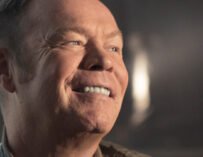
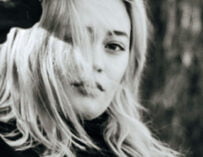


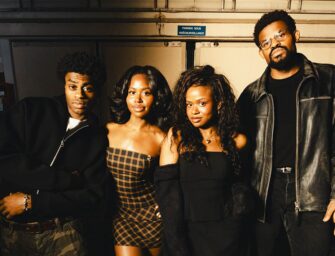
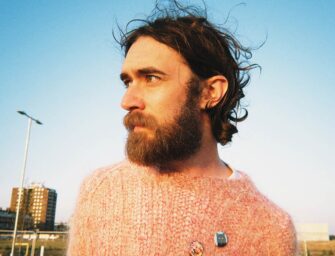

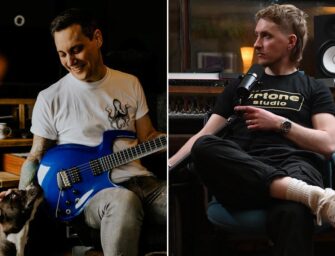






















Related Articles